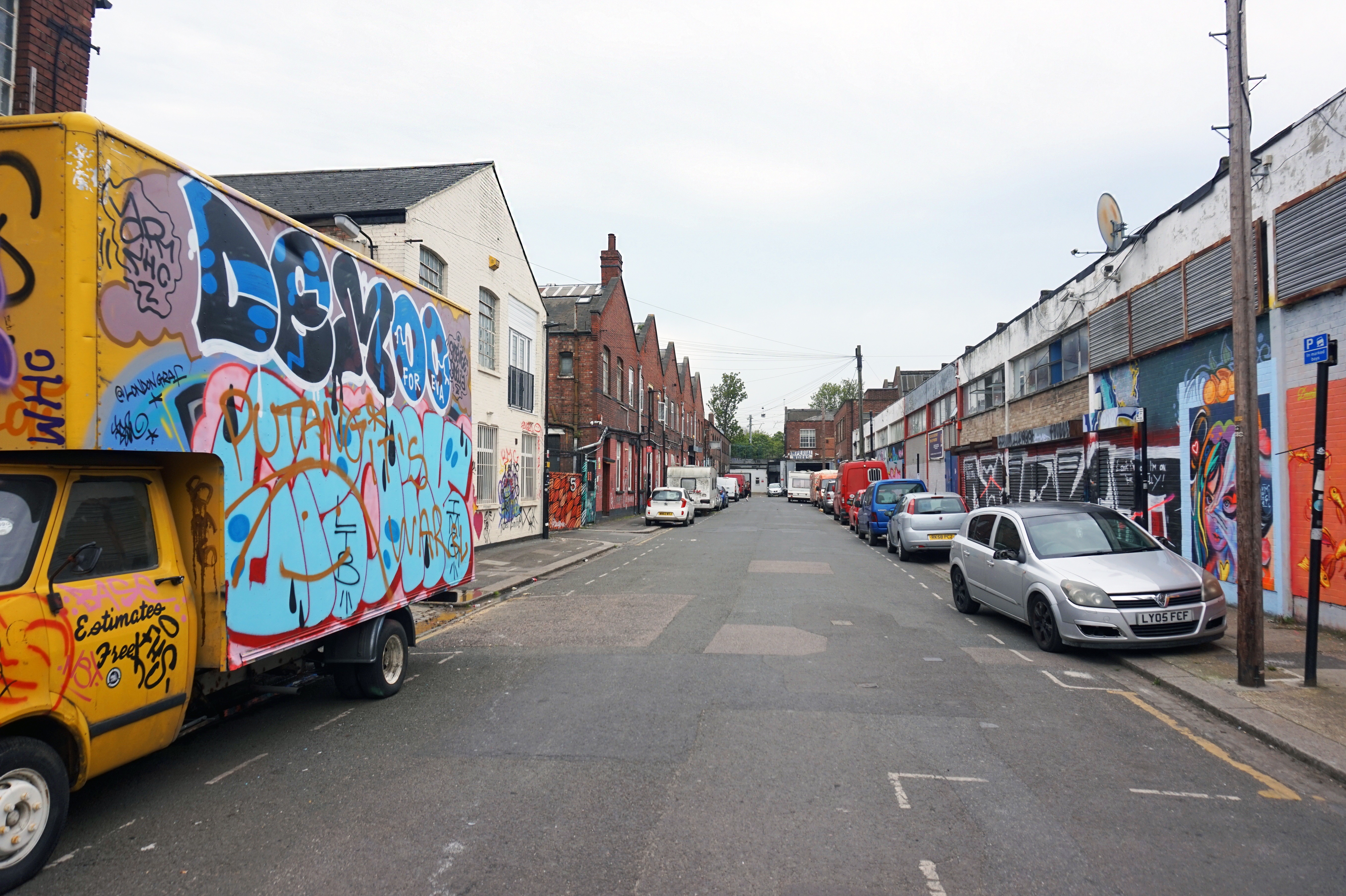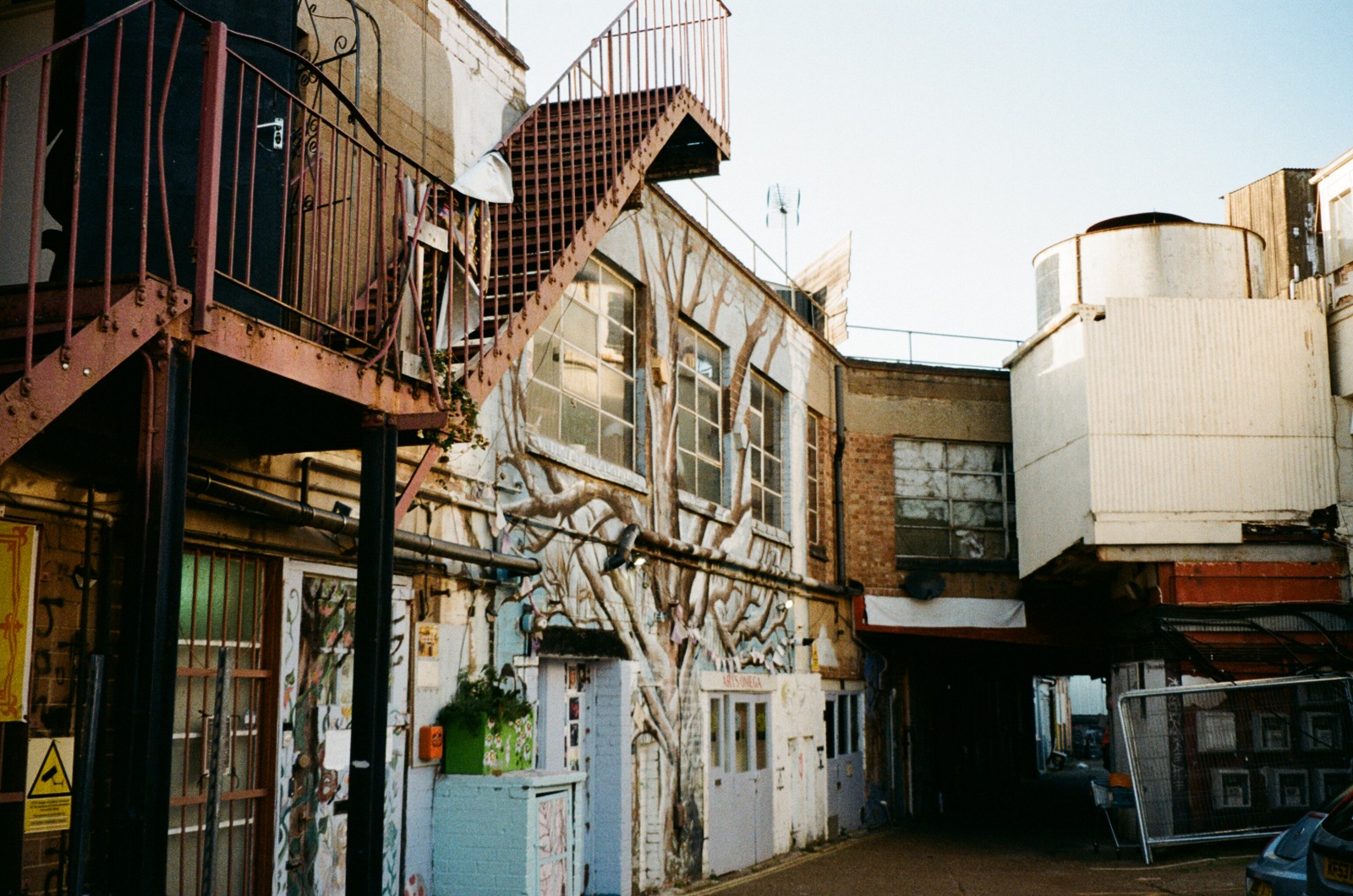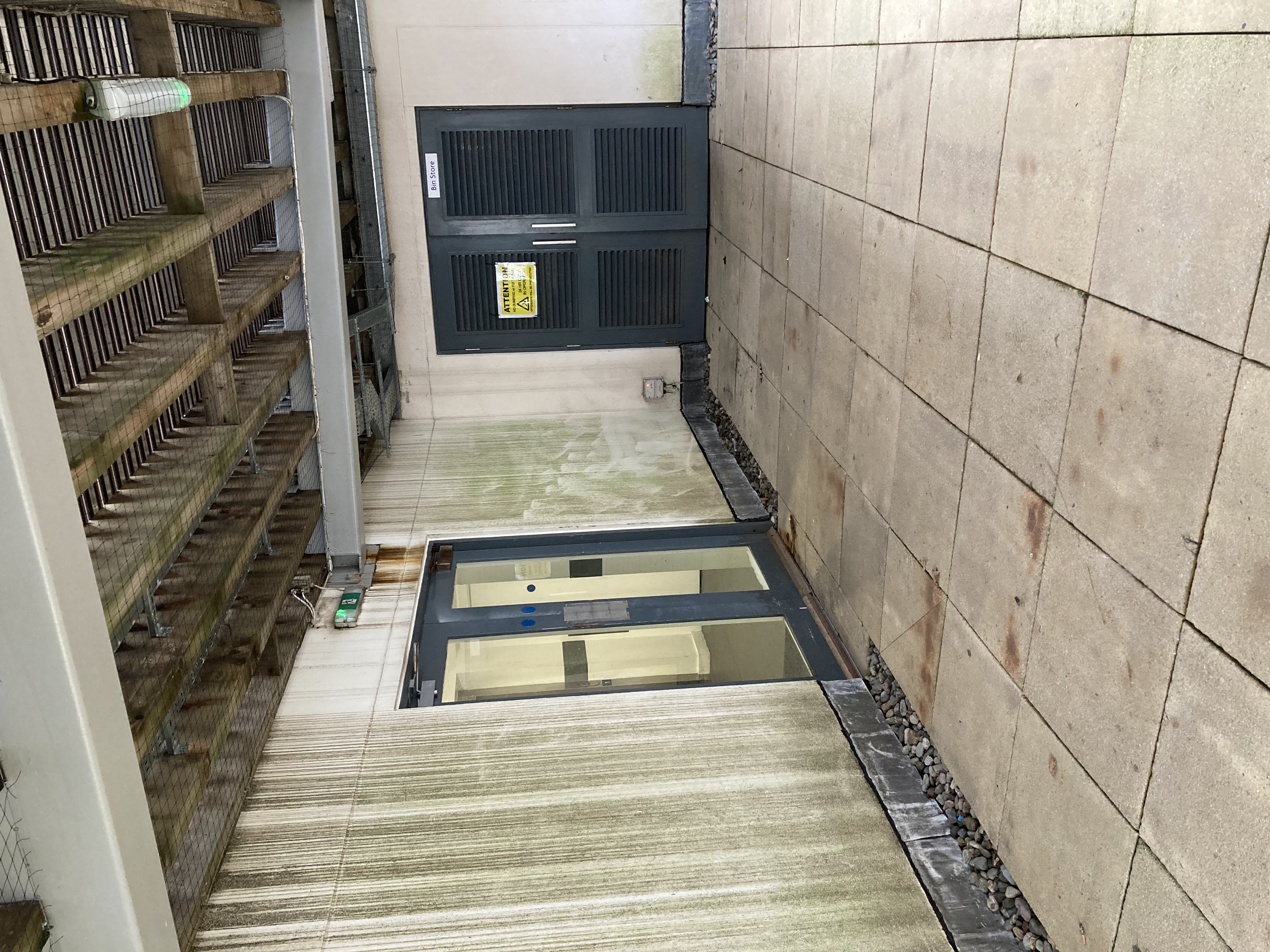The battle for London's Warehouse District
Landlords in London's artsy warehouse district are following the old playbook: rent out cheaply, let creative tenants liven up the place, then kick them out and cash in. But this time, residents are fighting back.
“We don’t have any assured shorthold residency. We’re all on a commercial lease so we’ve waived our tenant rights. Whether because we have asked for repairs, or because they have become aware that we’re trying to fight back on the redevelopment, they [the letting agents] can seize our property at any moment,” Caitlin Strongarm tells The Lead.
Caitlin is one of the organisers behind the Save The Warehouses campaign, which launched in 2021 after one of her neighbours discovered a sign on a side street lamppost inviting residents to an online meeting to discuss the redevelopment of the space. She lives in a work-live warehouse space in Omega Works, a converted piano factory hosting about 100 residents in the wider Haringey Warehouse District, North London.
The flyer was probably an attempt from the developers to claim they had done ‘community consultations’ and was most likely not meant to be seen by anyone but luckily residents were able to rally up and attend the Zoom meeting. That’s where, for the first time, the tenants discovered plans to have their homes eradicated and turned into multi-storey ‘warehouse-style living’ flats - actively just a more expensive reinvention of the housing already in place.
“This is an enormous redevelopment that could really change the landscape of the area” says Caitlin, “we’ve seen in their plans that after this area, they are looking to knock down the industrial space behind us and then another neighbouring warehouse district.”
The plan could kick off as soon as January 2024, with all residents receiving a notice as soon as October.

A warehouse in Haringey. Photo by Angry Jalebi.
“These housing situations are less secure generally, with no proper tenancy agreements, people are on commercial lets so it’s difficult to access legal recourse. It can be a total free for all,” says ACORN member Angie Rojas. ACORN is a community union, bringing people together across England and Wales to fight on the issues affecting them and their communities. “Housing issues have been a focus since we started in 2014, and continue to be the bread and butter of our work - organising private and social tenants to resist evictions, to fight unfair rent rises, and against substandard housing and disrepair.
ACORN is also fighting for policy change at a national level, and we’ve been heavily involved in the campaign for the Renters’ Reform Bill, which is expected to be brought to Parliament this Autumn.” explains their policy officer Anny Cullum. The Bill would introduce policies which range from scrapping ‘No Fault’ evictions, which have been up 143% in a year, to giving local authorities more power to enforce and protect renters' rights, and is set to be debated and voted on in the upcoming months.
Moving into a warehouse felt like winning the housing bingo: massive space, cheap rent, good location.
The enemy can appear insurmountable, especially with the awareness that most warehouses are all owned by the same agents. Palmlane Estates and Majorlink, the primary agencies renting out warehouses across North London, share the same staff members and together their assets come up to over £52 million.
Ultimately, behind these “liberal” spaces, there’s growing financial greed. Whilst this may be true to many renters dynamics, in warehouses the owners are directly operating on tenants’ exploitation, by issuing commercial leases rather than residential ones, and low quality housing (with prevalent issues of mould, draft and faulty electrics) that is sometimes unfit for human habitation.

London's warehouse district - photo by Magda Onatra
These conditions are something I’ve become accustomed to in my year and a half of living on Fountayne Road, a street in Seven Sisters renowned historically for attracting artists, musicians and all other forms of creatives in its warehouse units across the street.
From a mice infestation to ceiling leaks, the quality of our home can sometimes feel subpar, especially due to how distant landlords can feel. In my unit’s case, a leaseholder who moved out years ago is the only person holding a direct dialogue with them. It’s an agreement that I never really questioned because of how peculiar our living conditions are and thankfully our leaseholder approached their responsibility ethically, without overcharging us and being readily available - something many other warehouse tenants can’t claim.
“You’ve got two landlords basically,” Mona, who has lived on Fountayne Road since 2006, tells The Lead. “You have some leaseholders who are taking over units, doing them up, and charging £900 a room, and then the landlord themselves.”
Mona has accumulated an ample amount of stories over her seventeen years residing on the road; from one of the squats having a skate park inside when she first moved in, to their biggest ever rave coincidentally being on the same night as the first day of the London riots. She tells me how relaxed treatment from landlords had been historically: “we could do whatever we wanted.”
Landlords catch on
Things changed when business-minded leaseholders started spiking up rent for other tenants. The landlords eventually caught on, started renovating the spaces and raising the price themselves. Mona's unit fell victim to this last year and they were handed an eviction notice for ‘health and safety reasons’, and saw the price of their home sky-rocket post renovation. Out of the 14 people who used to live there, only a couple are still on the road.
“Consistently,” My friend Namal tells me when I ask if they’re fearful of losing their home. “Seeing units constantly changing, you start to wonder: ‘when is it going to be me?’”For Namal, a creative director and stylist, the warehouse is not just a home, but also their workplace. “My entire life is here,” Namal tells The Lead, “I’m 39, I have a lot of possessions, it’s not as straightforward as ‘I’m just going to move.’”
The bureaucratic freedom that comes with living in these spaces (lack of contractual obligations, relaxed background checks, ease of subletting) is a double-edged sword when it comes to challenging these forms of injustice. This is not only when it comes to the lack of tenant rights, but also for the culture of inaction it can foster. With the popularisation of warehouse living, more and more people are moving on the road without the intention of building a home or a community, and with the rents spiking up, this is bound to become even more common. “There used to be a bigger fight back in the day.” says Namal, “there’s been so much change of mood and movement that people have become quite complacent. They’re not as invested in the space as they used to be.”

London's warehouse district. Photo by Gregoire Charbonnier
Whilst the transient nature of warehouses holds challenges in the creation of a resilient community, efforts to unionise are ongoing.
More and more residents are joining ACORN’s Haringey branch, which in March 2023 alone won back £7500 through deposits returned and rent increases slashed. “We’re training our members up in member defence, so our community has the skills, confidence and resilience to stand up for itself,” Angie tells The Lead. Building a strong network of warehouse residents is essential to move forward demands which could grant more rights: from putting a halt to commercial leases, to tackling sketchy leaseholders.
“We started as a campaign group in response to the Omega Works redevelopment because of its immediacy, but the ambition is to extend this across warehouses,” says Caitlin. Suggestions moving forward range from registering as a Community Land Trust, to putting into place a designated neighbourhood forum. Currently, the group is in conversation with the mayoral Culture at Risk team, which has attempted to safeguard London’s grassroots cultural infrastructure since 2016. Whilst the warehouses are residential locations, there’s grounds for arguing they’re also cultural institutions that need to be preserved.
“It’s not just a home. It’s not just a workplace. It’s culture. It’s history. So many memories have been created here,” says Namal. Whether it was due to a party, a gig or a pottery class, thousands of people have crossed paths with these neighbourhoods that are slowly getting eradicated.
But, in other alternative living spaces across the country, we’re seeing some succeed; Ashley Vale, in Bristol, was a disused industrial site which was purchased in 2001 by local residents wanting to avoid developers building identical houses across it. Today, it is run by a successful non-profit making company and still holds 41 homes. In Liverpool, charity Housing People, Building Communities is in the process of converting the former St Bernard’s Catholic church into 16 new affordable homes, all whilst preserving the integrity of this historic building.
Moving into a warehouse felt like winning the housing bingo: massive space, cheap rent, good location.
But, above anything else, living in a warehouse feels special: art exhibitions regularly take place in units across our road, a chaotic Facebook group is filled with folks donating possessions and services, and there’s something magical about watching this collective of hippies and misfits living harmoniously next to a small Congolese church and a men-only bodybuilding gym.
As I currently stand in an active tenancy dispute related to my rent increase, I’m reminded of Mona's words: “Landlords can do whatever they want. It’s the people that make the place. And you can’t destroy people." I’m confident all the outstanding people I have met in my time here will persevere.
The Lead is now on Substack.
Become a Member, and get our most groundbreaking content first. Become a Founder, and join the newsroom’s internal conversation - meet the writers, the editors and more.




